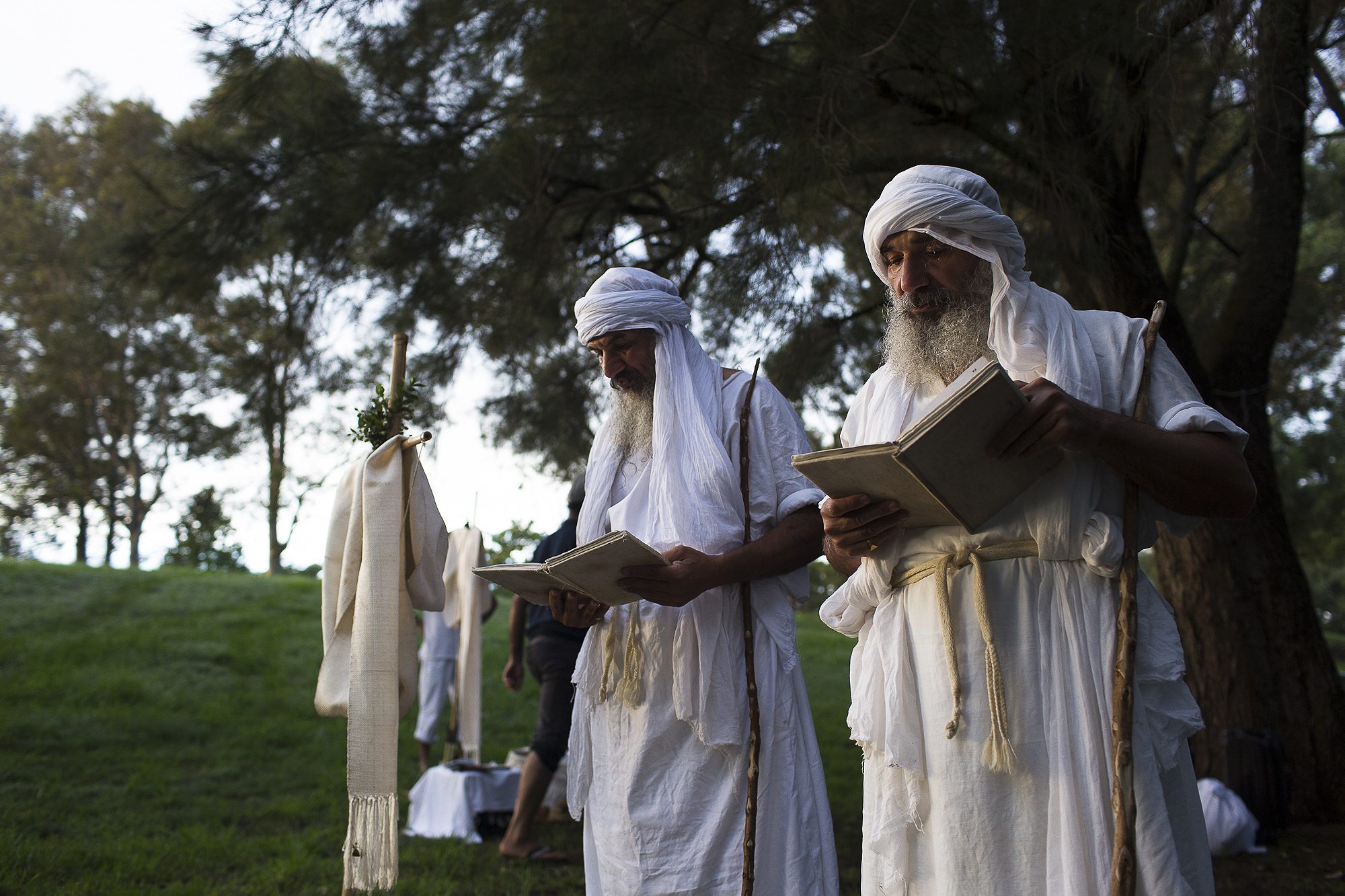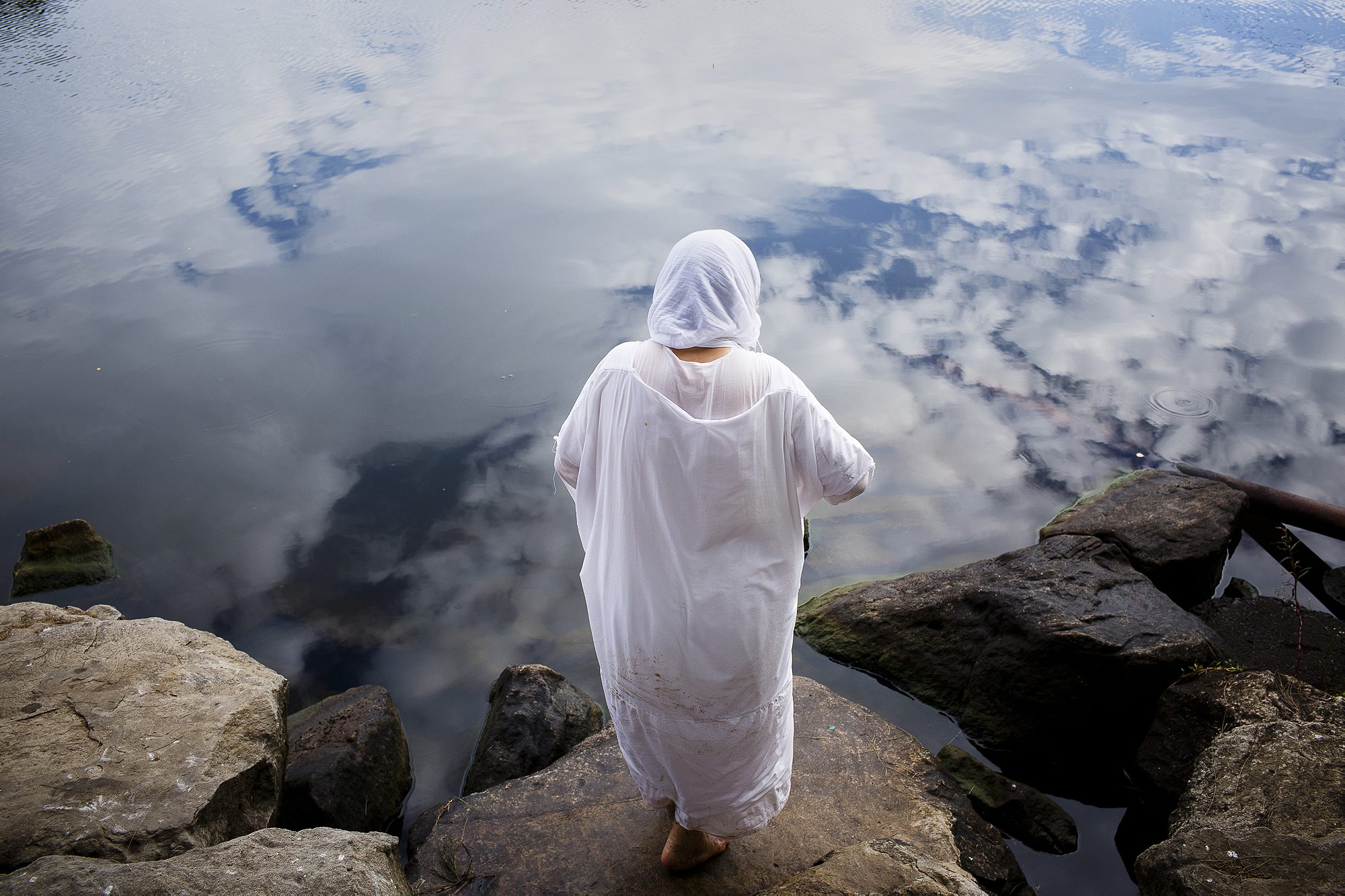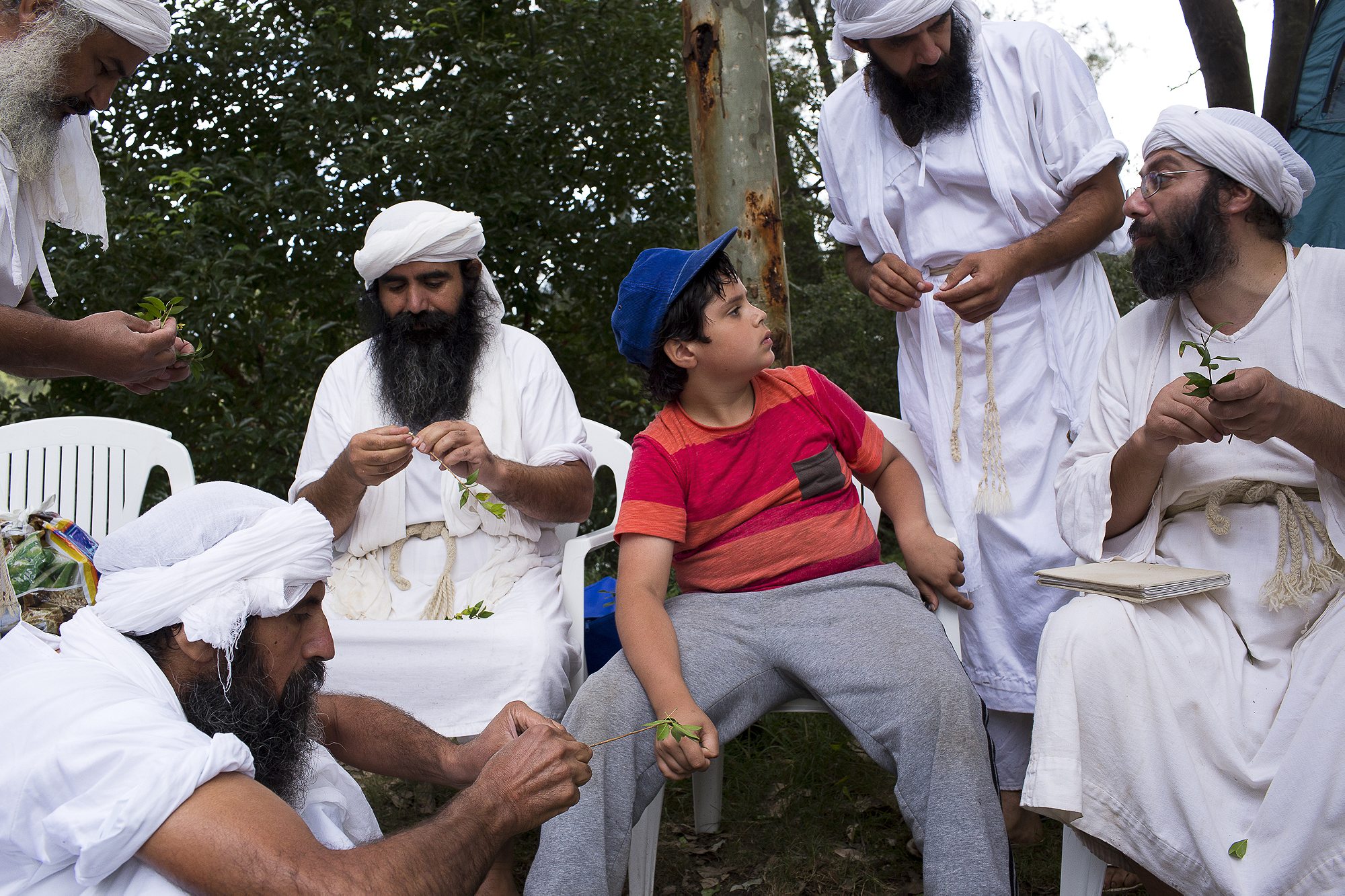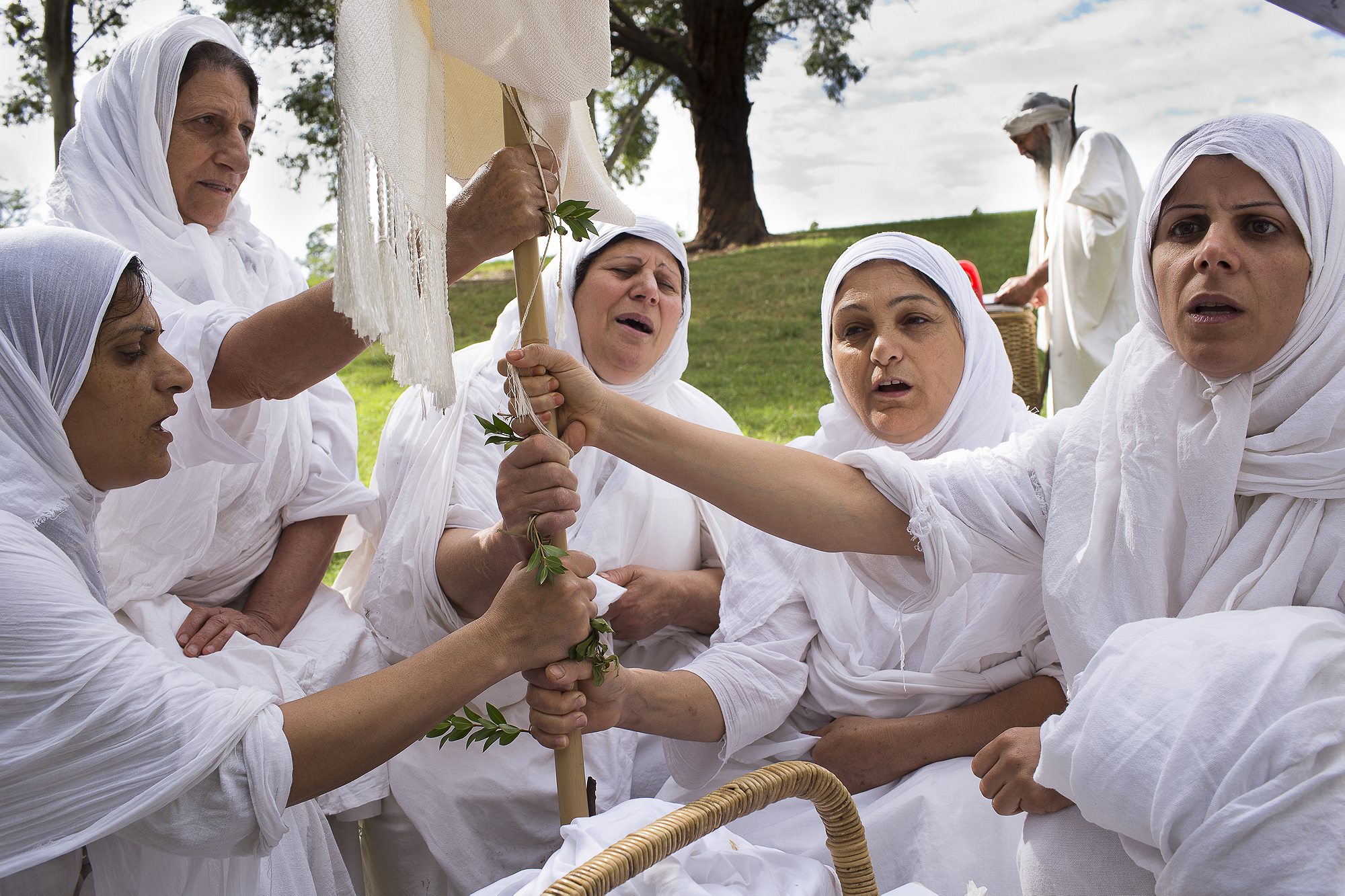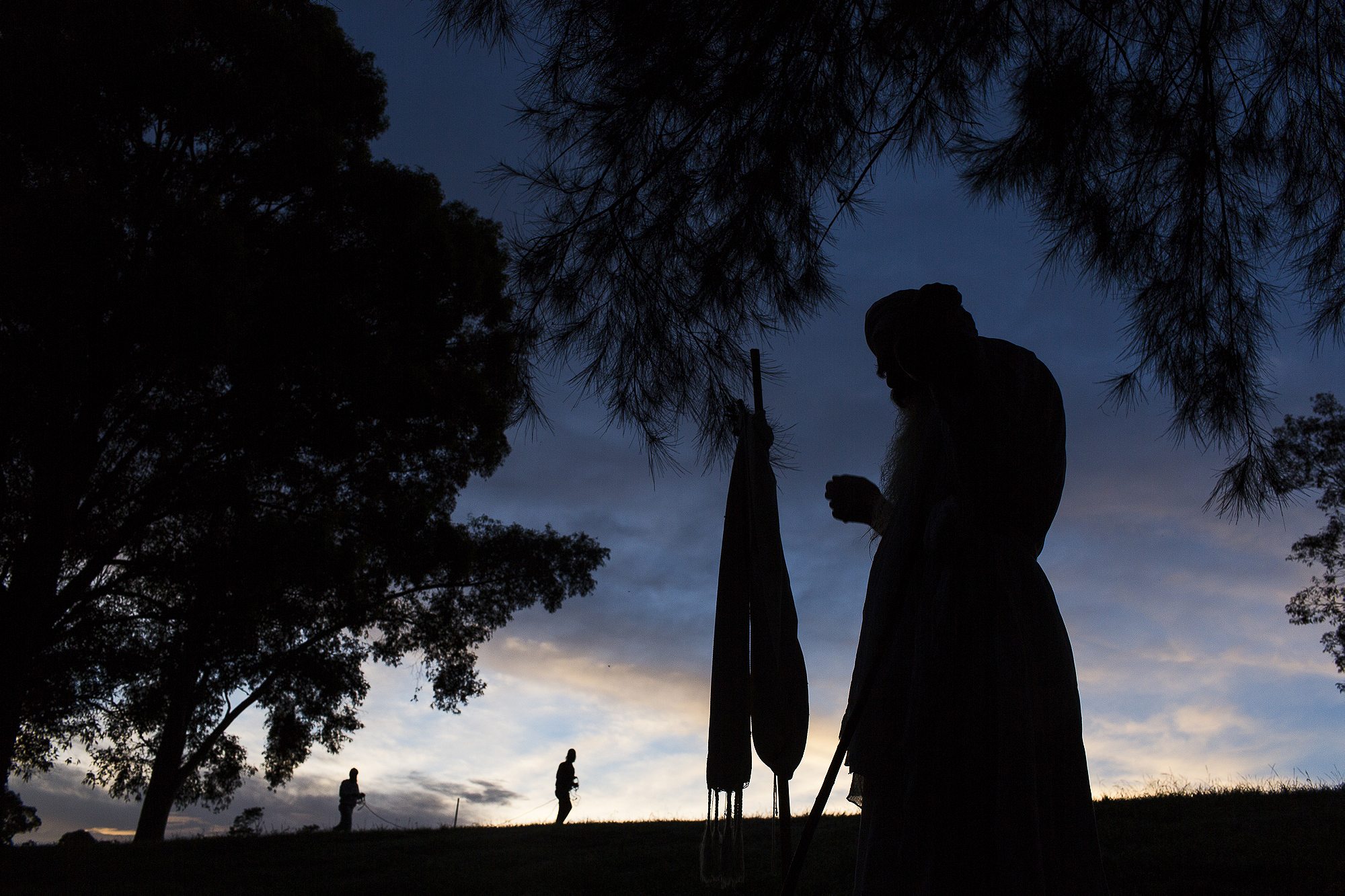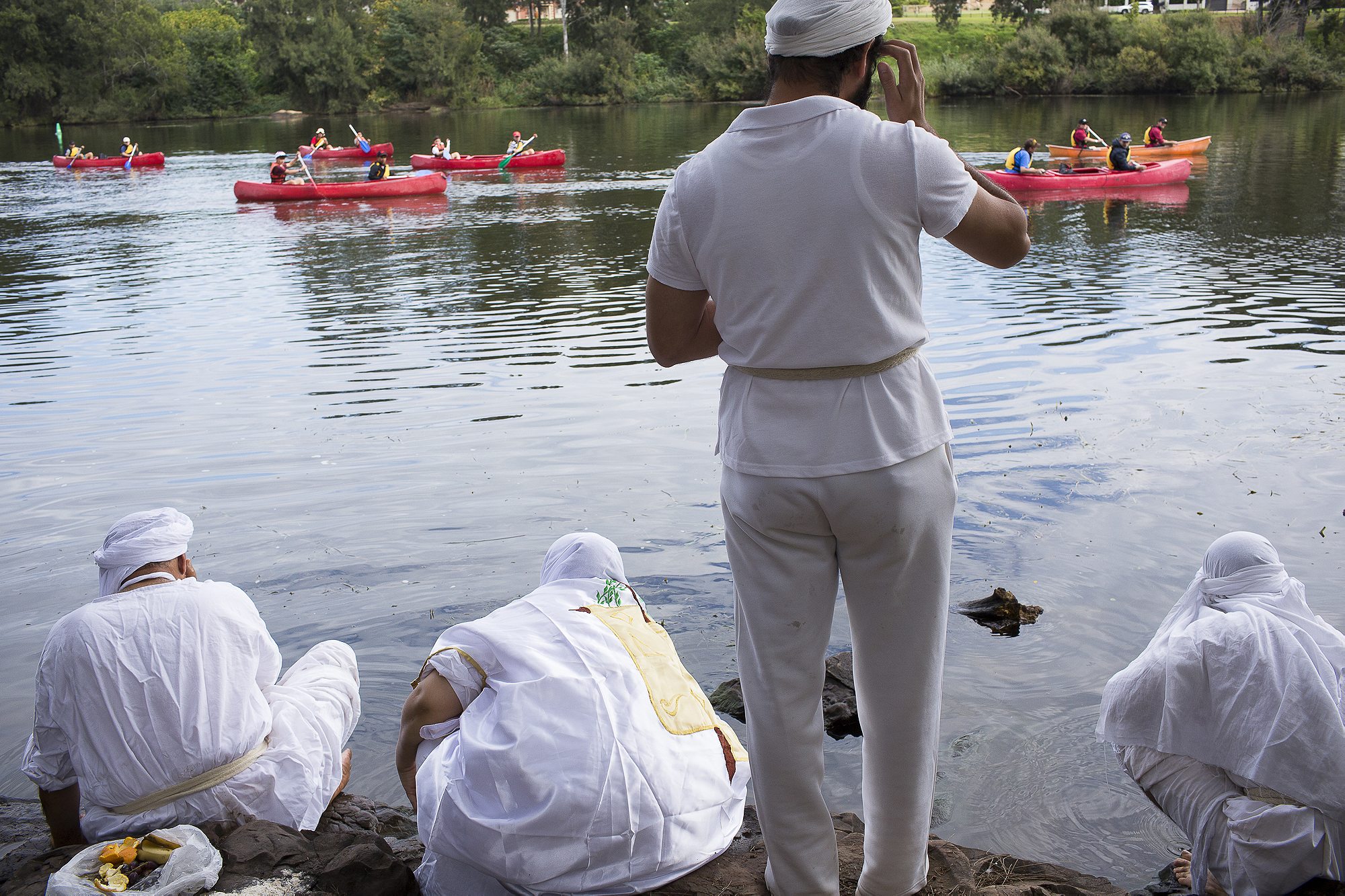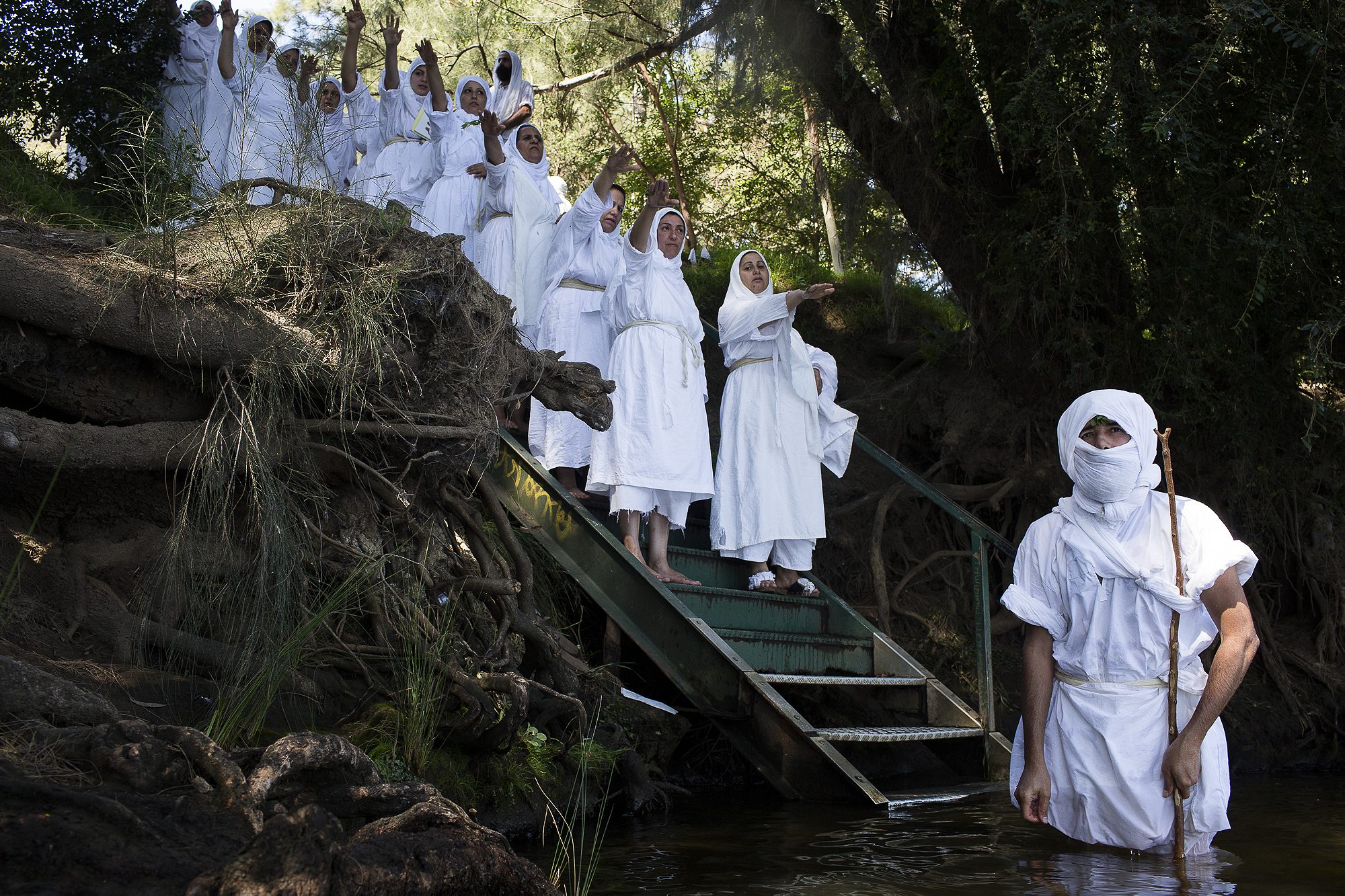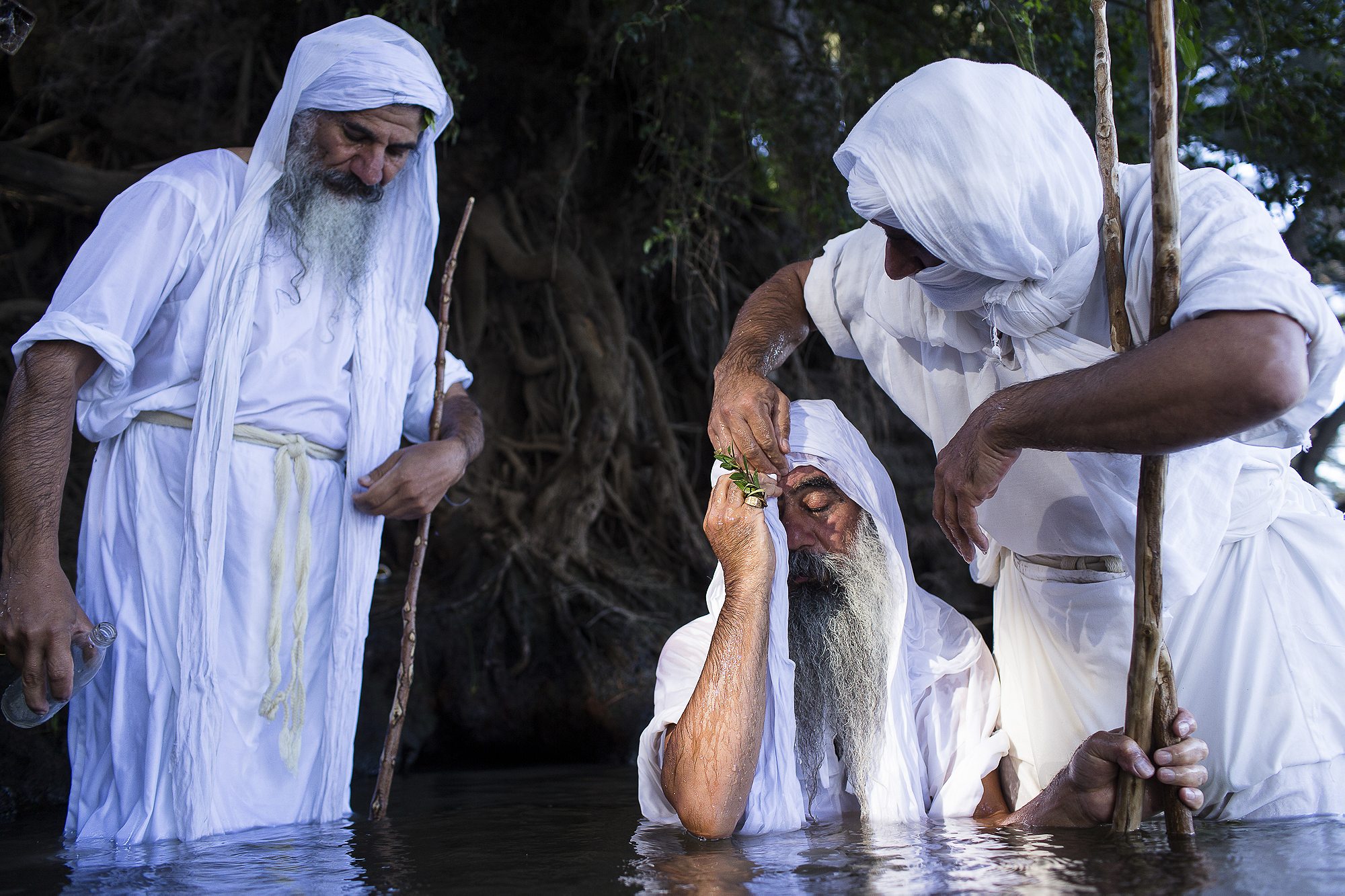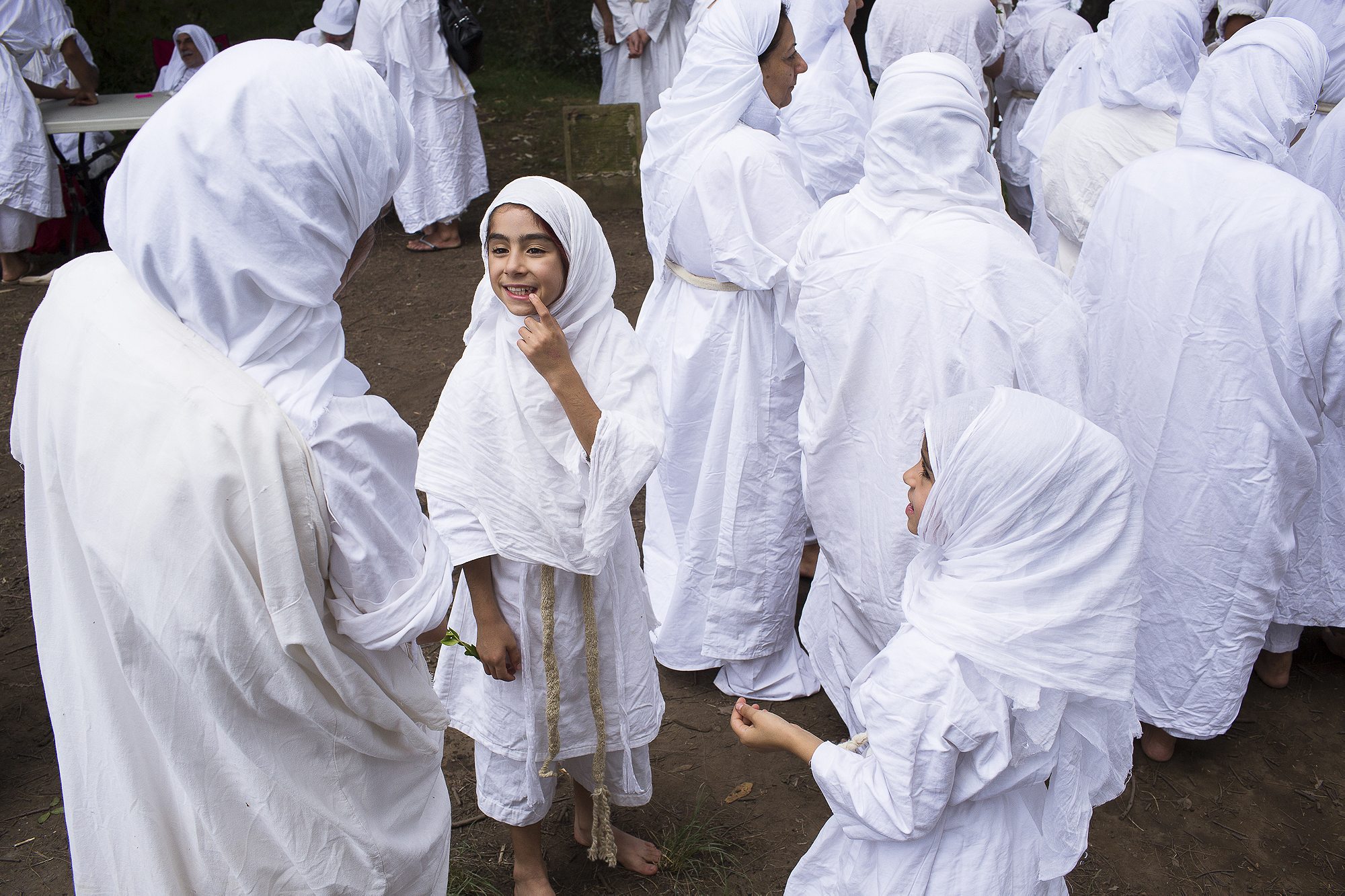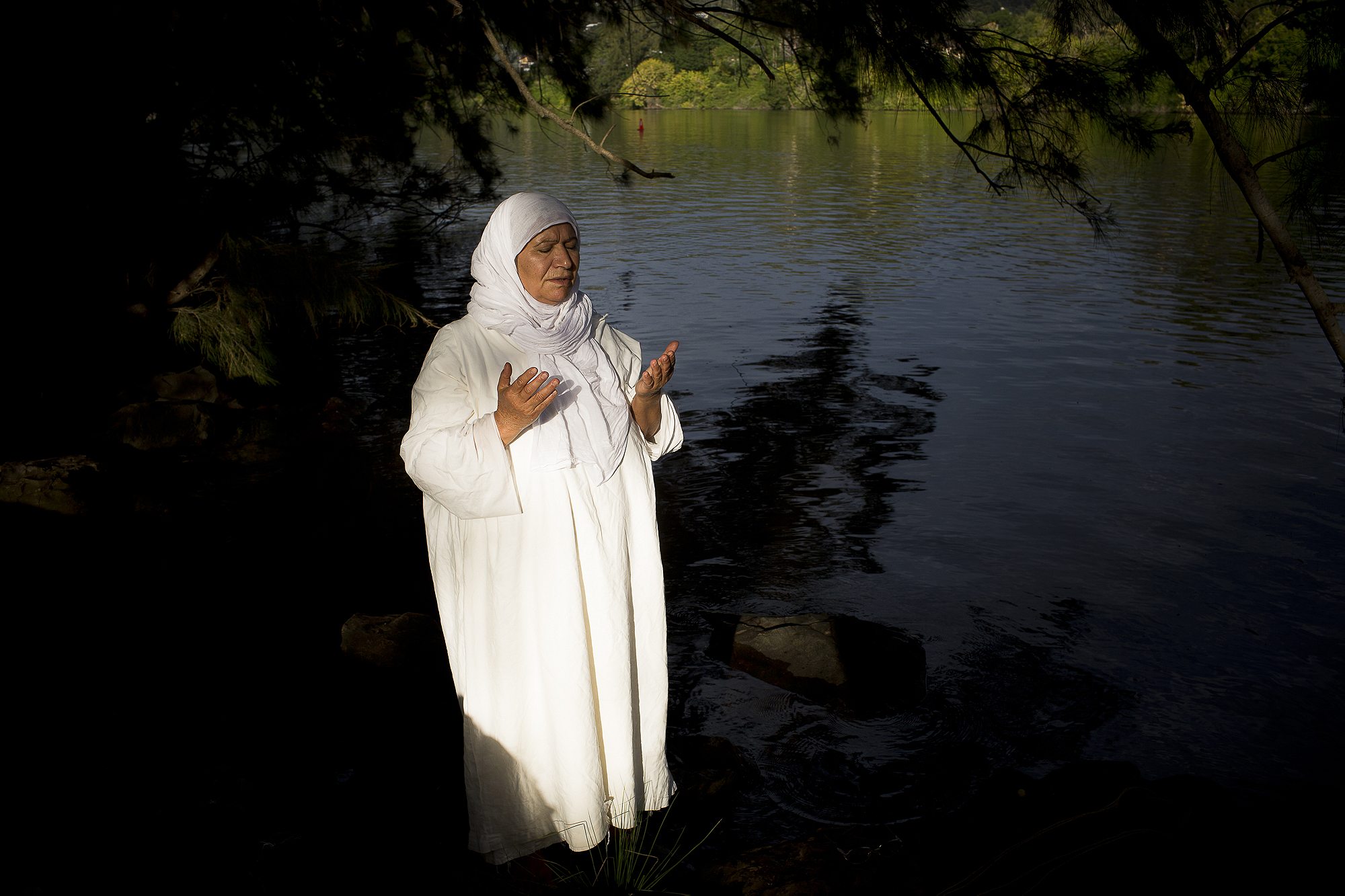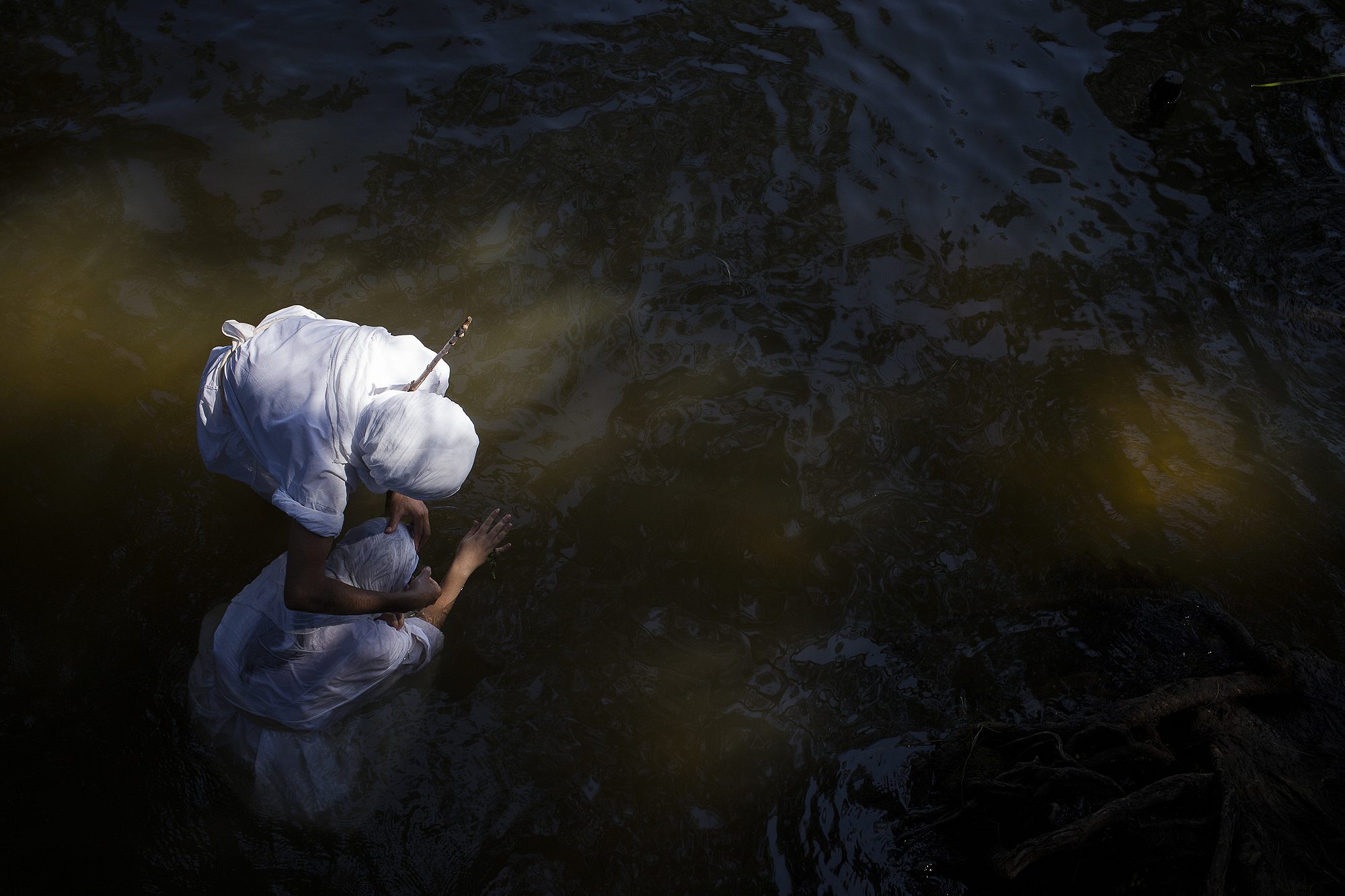Followers of an ancient religion have found an unlikely home in Australia, but keeping the faith alive is a daily struggle.
The scene is reminiscent of Biblical times. Dressed in flowing white robes and head coverings, men, women and children close their eyes and drop their heads below the surface of the water. Every year, they gather on the banks of the Nepean River in Penrith, a suburb of Sydney, Australia, to practice their ancient baptism rituals. They belong to one of the world’s oldest religions: Mandaeism.
With roots in ancient Mesopotamia, Mandaeans claim to be descendants of Adam and worship the prophet John the Baptist. Fresh flowing water is central to their faith. Through full immersion baptism, followers cleanse their sins and connect with God. The white ceremonial robes they wear, called rasta, are symbols of purity.
As a religious minority, Mandaeans have long faced persecution in their homelands of Iran and Iraq. With the start of the Iraq War in 2003, a mass exodus began. Today, an estimated 85% of their total population of 60,000 live abroad as refugees. Australia is home to one of the largest populations of Mandaeans, with about 10,000 living in the country, far removed from the troubles at home. But many fear the faith is dying, particularly since they do not accept converts. Mandaeans can only be born into the religion and must marry within it.
With a dispersed population, Mandaeism could disappear within a few generations. So for several years, community groups have been developing strategies to engage the second generation of Mandaeans, born and raised in Australia, with the faith. Construction of a special baptism pool near Sydney, for example, has recently started. The water will flow into the pool from the Nepean River, but will give the community some space and privacy. It’s a welcomed improvement from their current baptism location: a public park, where curious boaters are known to paddle by to have a look at these unlikely worshippers.
